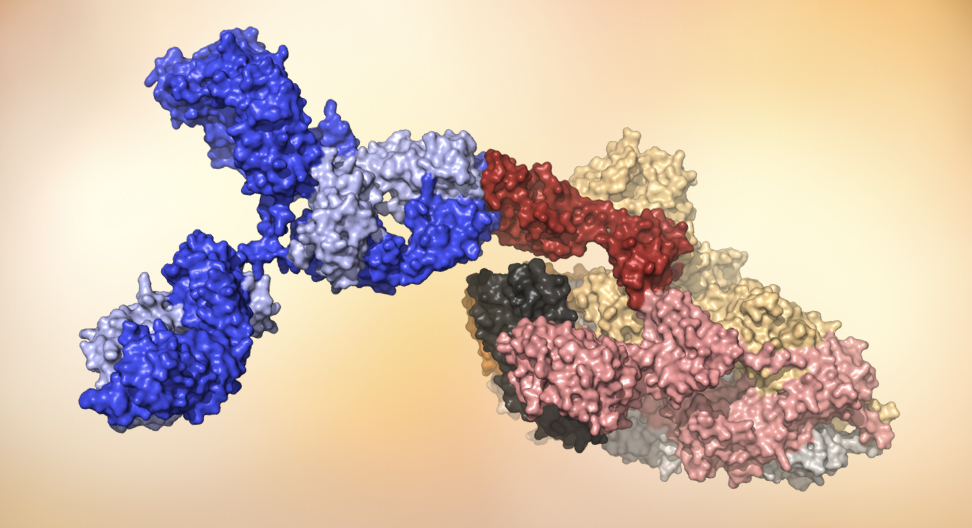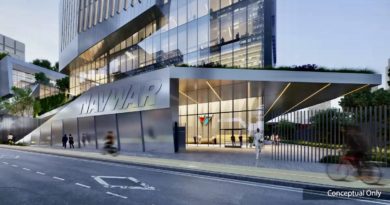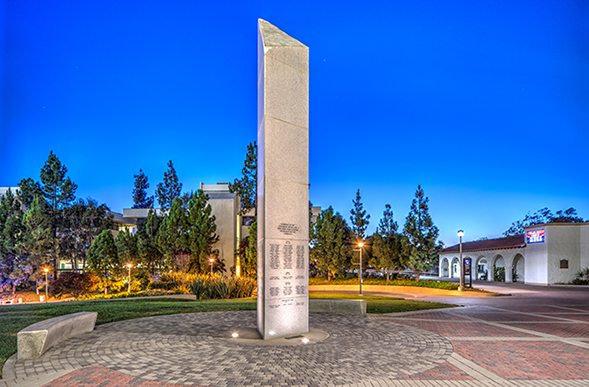Daily Business Report-June 16, 2020
A rendering of the California bullet train. (Courtesy California High-Speed Rail Authority)
Commentary
Democrats in Legislature may finally
derail California Bullet Train project
By Dan Walters
Is this the end of the line for California’s misbegotten bullet train project?
A bipartisan majority of the state Assembly, including Speaker Anthony Rendon, has passed a resolution that directs the High-Speed Rail Authority (HSRA) to delay final contracts for the initial segment of the bullet train in the San Joaquin Valley until the Legislature appropriates $4.2 billion in state bonds.
On its merits, that’s entirely logical. Why would the state commit to billions of dollars for land acquisition and construction without having the money in hand? It doesn’t do that for other public works, nor should it.
However, in the context of rising legislative opposition to the project and sentiment for shifting the remaining bond funds to commuter transit projects in major urban areas, such a delay could be the beginning of the end.
Construction on the San Joaquin Valley segment’s roadbed, roughly from Chowchilla to an orchard north of Bakersfield, has been underway for several years, using a mixture of state and federal funds. After becoming governor in 2019, Gavin Newsom publicly disparaged the bullet train’s viability, but quickly retreated and proposed to extend the current segment northward to Merced and southward to Bakersfield, adding several billion dollars to the projected cost.
The HSRA wants to begin acquiring land for the extensions on both ends and award contracts for track, electrification and other major components.
“The only remaining opportunity for the Legislature to weigh in on the direction of the high-speed rail project occurs when (HSRA) asks us for the remaining $4.2 billion in bond funds,” one of the project’s chief critics, Assemblyman Jim Frazier, a Democrat from Discovery Bay, said in a statement.
“We cannot allow HSRA, or any department, to enter into contracts that bind the Legislature’s approval of future appropriations,” Frazier continued. “The Legislature’s role in approving the budget must be respected before key decisions on the state’s largest infrastructure project are made.”
_________________________________
Bumble Bee Seafood announces
acceleration of sustainability efforts
San Diego-based Bumble Bee Seafood Company announced a $40 million commitment over the next five years toward efforts that will further restore and protect the health of the world’s oceans.
The company has created a dedicated Accelerator Fund focused on further closing the gap on some of the biggest industry challenges in the sustainability space. Desired outcomes of the initiative include ensuring the abundance of tuna stocks, reducing the impact of fishing on other species and working to remove plastics and other waste from the ocean.
“Our sustainability journey started many years ago and we’re proud of our past accomplishments, but now is the time to accelerate our actions,” said Jan Tharp, president and CEO of the Bumble Bee Seafood. “It’s the right thing to do for our planet, for the billions of people who rely on seafood for sustenance and for the long-term success of our business.”
Tharp said the company will use the Accelerator Fund to pursue new ideas, partners and technologies, while also continuing to advance several current initiatives making a significant impact. Complete details are available in the company’s Seafood Future Report, which will be updated annually to track against progress.
_________________________________
COVID- 19 cases swell in nursing
homes with poor track records
Calmatters
As coronavirus continues to ravage nursing homes — whose residents make up more than 40 percent of California’s COVID-19-related deaths — many are operating with significantly less oversight, CalMatters’ Jocelyn Wiener reports. To minimize the virus’ spread, state inspectors have stopped annual inspections, family members have suspended visits and complaint investigators have stopped entering facilities. Advocates say this cuts a vulnerable population off from those who protect them at a dangerous time, a problem exacerbated in nursing homes with track records of poor care like Kingston Healthcare Center in Bakersfield.
Tony Chicotel, a staff attorney for California Advocates for Nursing Home Reform: “I can’t think of any other time like this, where all of the layers of oversight are missing. My guess is there’s lots of terrible neglect going on that is harming people to levels that are akin to the virus, but we just don’t know.”
_________________________________
Independent living facility in College area
ordered closed by San Diego Superior Court
An independent living facility in the College area has been ordered closed by the San Diego Superior Court. The facility was notorious for its numerous Health and Safety Code violations and its frequent calls for police service for disturbint the peace and other concerns, according to City Attorney Mara Elliott.
Under the court’s injunction, the owners, manager, and operator are prohibited from operating or maintaining an unlicensed Community Care Facility or Residential Care Facility for the elderly anywhere in the county of San Diego.
In addition, property owners Yuk Yuen Yu and Beatrice Yu, property manager Michelle Lin, and operator Mark Rogers were ordered to pay a combined total of $267,140 in civil penalties, relocation benefits and costs with $36,000 of those penalties set aside for restitution to the victims. Failure to comply with the permanent injunction to cease operations will result in an additional $1,124,000 in civil penalties.
For more than 10 years the property at 5128 Ewing St. had been operating as an ILF. In exchange for rent, ILFs are supposed to provide housing to individuals who can live independently and function without supervision or medication oversight.
The property had been cited repeatedly for building violations over the past decade and was the subject of 297 calls for police service, most of which included suicide threats, disturbing the peace, and calls for psychiatric evaluations.
_________________________________
UC San Diego researcher selected to join
Pew Scholars Program in Biomedical Sciences
Researcher Sonya Neal of UC San Diego has been selected to join the Pew Scholars Program in the Biomedical Sciences. She will receive four years of funding to invest in foundational research to pursue scientific breakthroughs and advance human health.
Neal will examine the quality control mechanism that allows cells to clear away potentially toxic misfold22ed proteins.
Neal is one of 22 researchers chosen for the program by the Pew Charitable Trusts. The 2020 scholars were chosen from 191 applicants nominated by leading academic institutions and researchers across the United States. This year’s class includes scientists exploring why female mammals age differently than males, how environmental factors affect the trajectory of inflammatory disease, and the molecular mechanisms that allow the body to sense and regulate temperature.
_________________________________
Souplantation and Sweet Tomatoes owner
liquidating assets under Chapter 7 bankruptcy
San Diego-based Garden Fresh Restaurants LLC, operator of Souplantation and Sweet Tomatoes eateries, is liquidating all assets under its Chapter 7 bankruptcy filing. The chain, which employed thousands, was a popular place to dine with self-service food bars, was not able to survive the impact of the COVID-19 pandemic and permanently closed all 97 restaurants and 3 distribution centers in early May. It is, to-date, the largest restaurant bankruptcy and liquidation as a result of the pandemic.
The equipment and contents are being auctioned online until June 30 in locations nationally at www.RestaurantEquipment.Bid.
The Garden Fresh bankruptcy and resulting liquidation is an important story about the challenges facing the restaurant industry as a result of the pandemic. According to the National Restaurant Association, the industry lost over $225 billion in revenue, putting over eight million people out of work and resulting in the temporary or permanent closing of over 150,000 locations.
_________________________________

LPC West sells R&D building
in Sorrento Mesa for $17 million
LPC West Inc., the West Coast operating division of Lincoln Property Company, has sold a 62,392-square-foot, two-story, flex R&D building to an affiliate of Alexandria Real Estate Equities for $17 million in an off-market transaction.
The building, which LPC West acquired in September 2019, is located at 9877 Waples St. in San Diego’s biotech-heavy Sorrento Mesa. Currently, the building is mid-way through LPC West’s biotech conversion process, which the buyer will complete.
Concurrently, LPC West leased the entirety of its 39,644-square-foot, two-story industrial-flex-lab property at 9955 Mesa Rim Road, less than one mile from the Waples property, to Biocept for an undisclosed amount. Lincoln purchased the property in December 2019 with a soon-to-expire lease in place. Biocept is a molecular diagnostics company that supplies its proprietary liquid biopsy technology to physicians.
Andy Huggett, Bill Dolan and Sean Williams of CBRE represented LPC West in the sale, while Alexandria represented itself.
_________________________________
Study of brain aging and cognitive
change receives $19 million grant
Researchers at University of California San Diego School of Medicine, with colleagues at Boston University and elsewhere, will receive almost $19 million over five years to launch the fourth phase of the Vietnam Era Twin Study of Aging (VETSA 4). Funded by the National Institute on Aging, the grant will support ongoing research, including large-scale behavioral genetics studies, of cognition, aging and the risk for mild cognitive impairment and Alzheimer’s disease.
VETSA is a set of longitudinal projects with a primary focus on examining genetic and environmental influences on brain function and aging, beginning at midlife. It was originally launched in 2002. To date, more than 1,600 identical and fraternal male-male twins have participated, all with military service at some point between 1965 and 1975, though most report no combat experience.
_________________________________

Students pivot to hold
successful media festival
By Tim Meehan | Cal State San Marcos
While planning and preparation are always important, life can change in the blink of an eye.
When China essentially shut down the entire city of Wuhan – home to 11 million people – in January, many residents had to immediately flee their apartments to either move in with family or seek housing elsewhere.
Some Wuhan residents couldn’t bring their pets, leaving nothing but a little food and a hope they’d return before it was too late.
Across the globe, when Cal State San Marcos flipped the switch to virtual learning in March, senior Jun Fang packed his belongings, bought a plane ticket and returned to his native China.
His big project left to complete before graduation was a documentary he planned on entering in the CSUSM Student Media Festival, but he had to completely abandon his original script because of the sudden directional change.
Fang altered his documentary to focus on a locksmith in Wuhan who, on his own, went around the city rescuing as many animals as he could as the city remained in lockdown much longer than residents anticipated.
For his inspirational vision and technical mastery, Fang’s “Locksmith and Cat” earned the Best Documentary award in this year’s Student Media Festival.
“Because COVID-19 is a global hot topic, I wanted my movie to focus on someone that people didn’t see in the news and social media,” Fang said. “Then I found a locksmith who worked in Wuhan and recorded the story of the task he took after the closure of the city to rescue the cats locked in homes.”
_________________________________

Super-potent human antibodies protect
against COVID-19 in animal tests
A team led by Scripps Research has discovered antibodies in the blood of recovered COVID-19 patients that provide powerful protection against SARS-CoV-2, the coronavirus that causes the disease, when tested in animals and human cell cultures.
The research, published today in Science, offers a paradigm of swift reaction to an emergent and deadly viral pandemic, and sets the stage for clinical trials and additional tests of the antibodies, which are now being produced as potential treatments and preventives for COVID-19.
“The discovery of these very potent antibodies represents an extremely rapid response to a totally new pathogen,” says study co-senior author Dennis Burton, PhD, the James and Jessie Minor Chair in Immunology in the Department of Immunology & Microbiology at Scripps Research.



